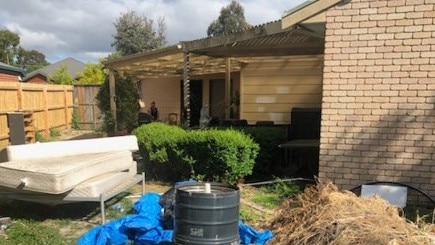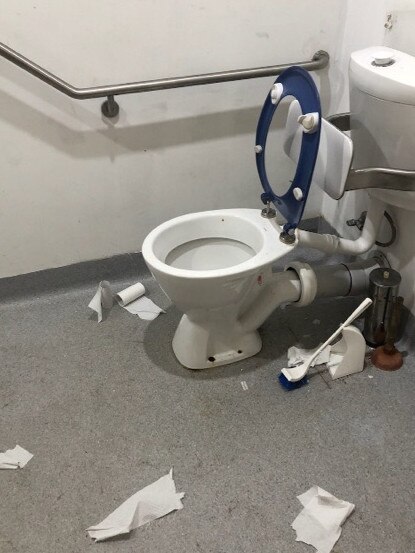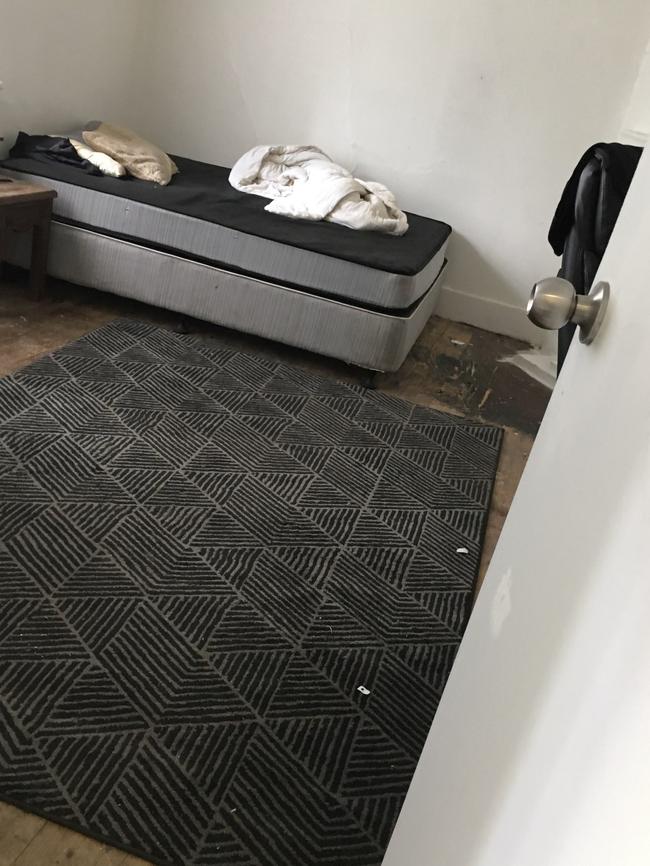Filthy, overcrowded rooming houses pose COVID-19 risk
“Dodgy operators” are making thousands every month from vulnerable residents living in properties across Melbourne’s southeast with “woefully poor standards of hygiene” such as filthy shared bathrooms and rodent faeces in cupboards.

South East
Don't miss out on the headlines from South East . Followed categories will be added to My News.
Shocking conditions, including blood on the walls, mould and bedbugs, have been uncovered in private rooming houses across Melbourne’s southeast and the Mornington Peninsula.
A confronting report from outreach workers has called on emergency housing providers to boycott “dodgy operators”.
Peninsula Community Legal Centre’s Open the Door report revealed that vulnerable residents were being packed into rundown properties with “woefully poor standards of hygiene”.
The centre’s chief executive Jackie Galloway said residents described the accommodation as “like living in hell” and that sleeping rough would be cheaper and safer.
“We’re seeing more and more people who have lost their jobs and their homes winding up in overcrowded rooming houses with filthy shared bathrooms, broken stoves forcing them to cook in their bedrooms, rodent droppings in the cupboards, and broken locks on their door,” Ms Galloway said.
The centre’s outreach program – which covers more than 800 private rooming houses from Port Melbourne to Portsea and Dandenong to the Yarra Ranges – found that more than 40 per cent of the properties they visited failed to meet basic standards.
Ms Galloway said the overcrowded and unhygienic living conditions posed an even greater public health threat under COVID-19.

“Ten people sharing a filthy bathroom is no longer acceptable in a COVID-19 world. The minimum standards need to be raised, and there needs to be greater effort to hold dodgy operators to account,” Ms Galloway said.
PCLC community engagement officer Kirsten Young said some landlords were taking advantage of the lack of affordable housing and emergency accommodation.
“Instead of renting a three-bedroom house for say $500 a week, they can put up chipboard partitions, turn the property into a rooming house and take $200 each from 8-10 people,” she said.
“The houses are not cleaned or maintained properly and are basically run by what you could describe as dodgy operators.”

The report called for agencies to stop referring people to rooming houses that were well-known for being unsafe, unclean, overcrowded or otherwise in breach of the law.
“In our view it would be better to avoid referrals and in some cases boycott rooming houses which are notorious in the industry,” the report states.
A similar initiative was rolled out earlier this year in Melbourne’s north and west when 50 agencies agreed to boycott the providers of the worst-rated properties, as assessed by people who had lived there.
Responsibility for the sector is shared by local councils, Consumer Affairs Victoria (CAV) and the Department of Health and Human Services.
A CAV spokesman said its compliance and inspection program “continues to ensure that operators of registered rooming houses are licensed and comply with the minimum standards, with a particular focus on safety and security breaches”.
“If registered rooming houses fail to comply with these standards, Consumer Affairs Victoria will take action – this may include infringement notices and civil proceedings,” he said.
In 2018/19 the authority carried out 406 inspections. That year there were 1340 registered rooming houses in Melbourne.
Last month, councils in Melbourne’s south and southeast joined forces to call for more housing to address the social and health needs of the region’s most vulnerable community members.
Initiated by Monash Council, the Regional Local Government Homelessness and Social Housing Charter 2020 was created after a forum including chief executives and senior staff from 13 councils met to discuss issues surrounding the crisis.
MORE NEWS
WHERE TO FIND WORK ON THE MORNINGTON PENINSULA
WHO IS THE BEST PERSONAL TRAINER IN MELBOURNE’S SOUTH EAST?
